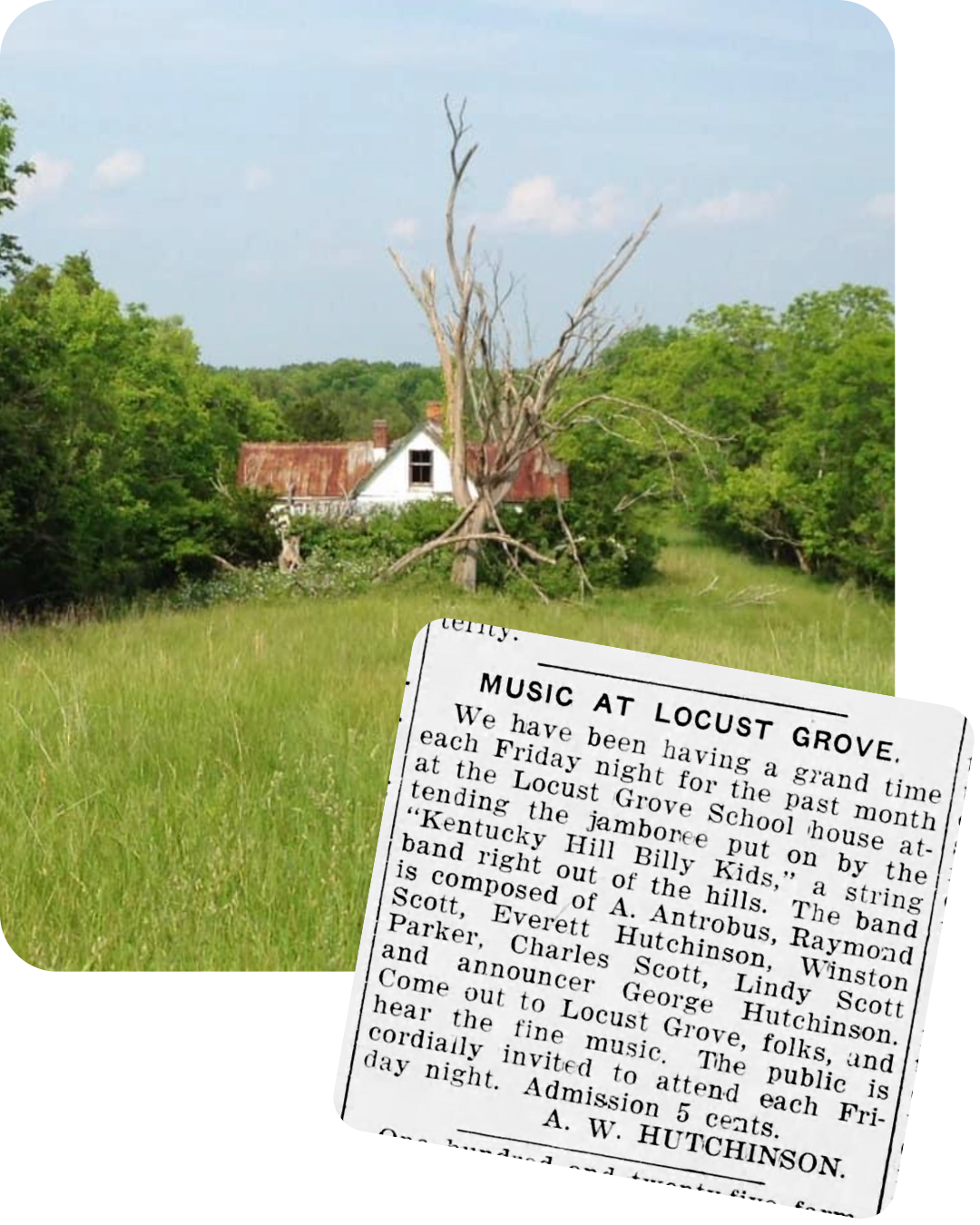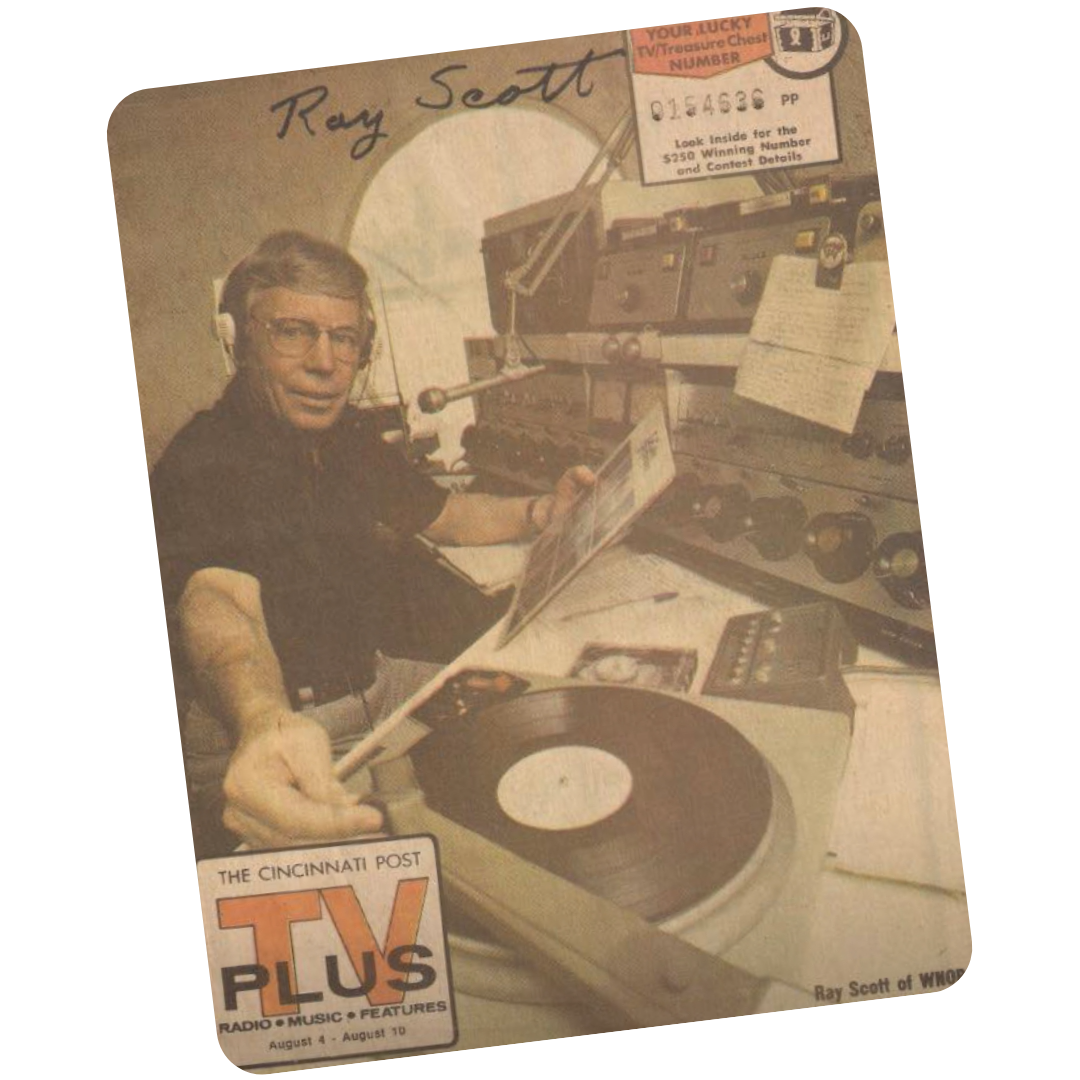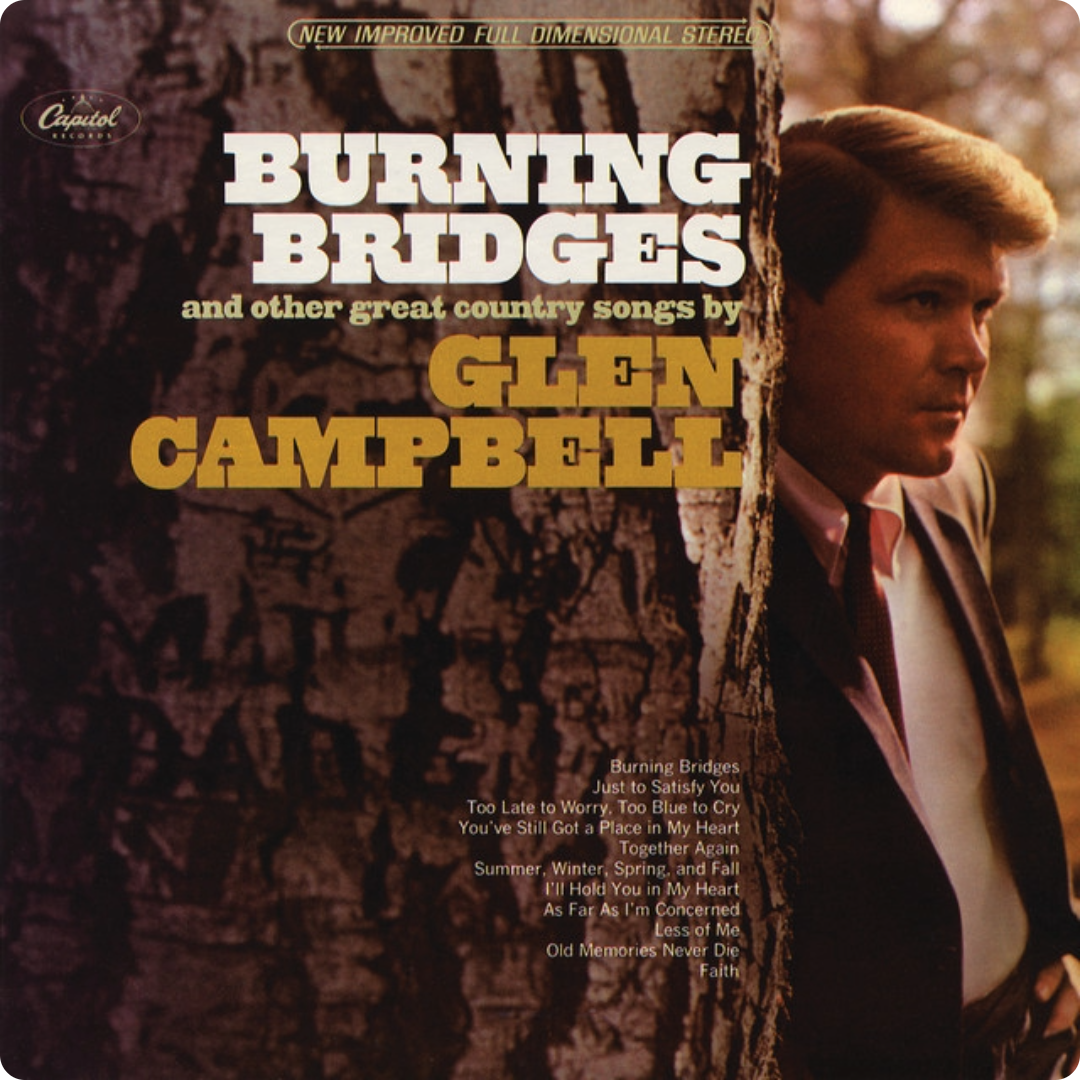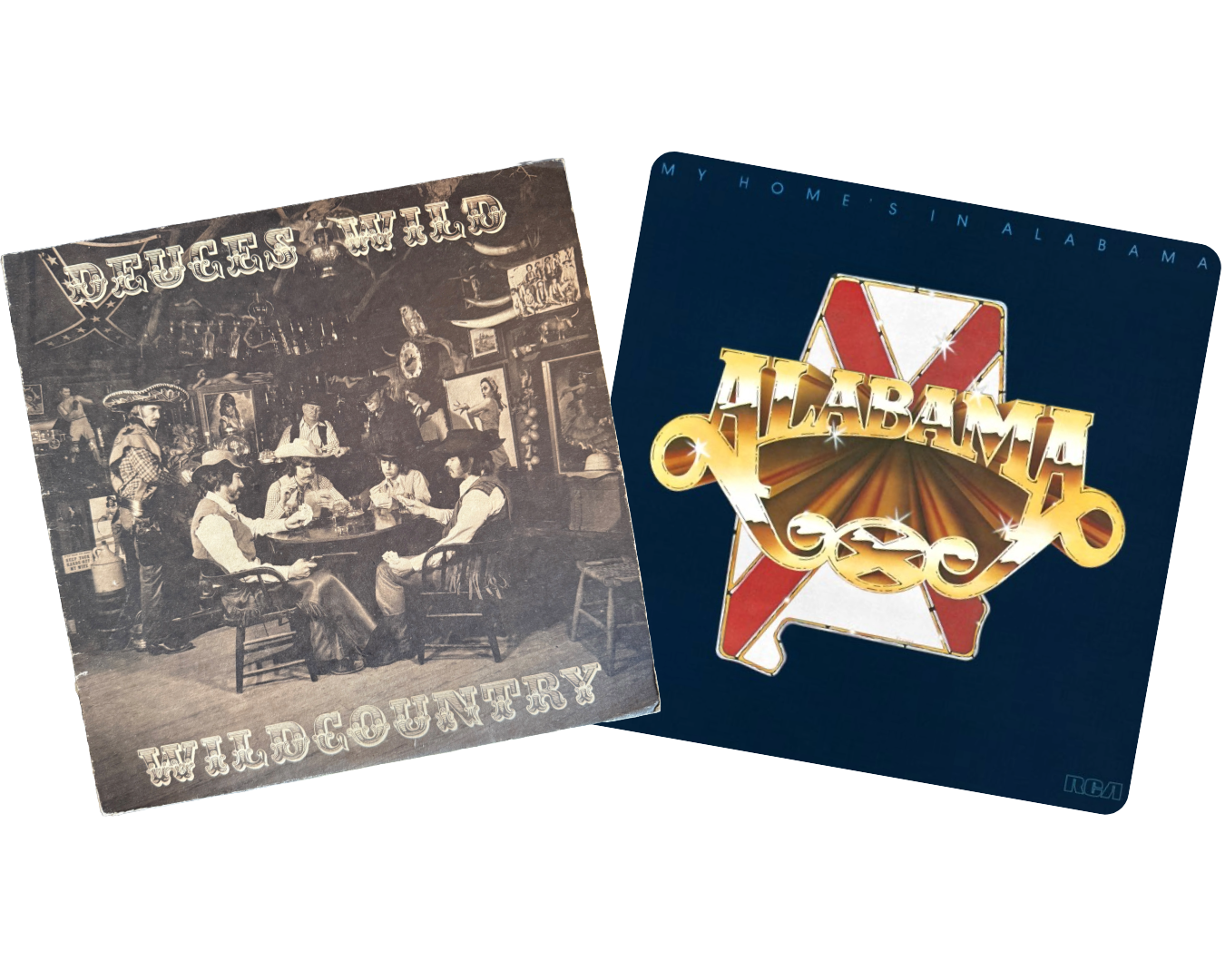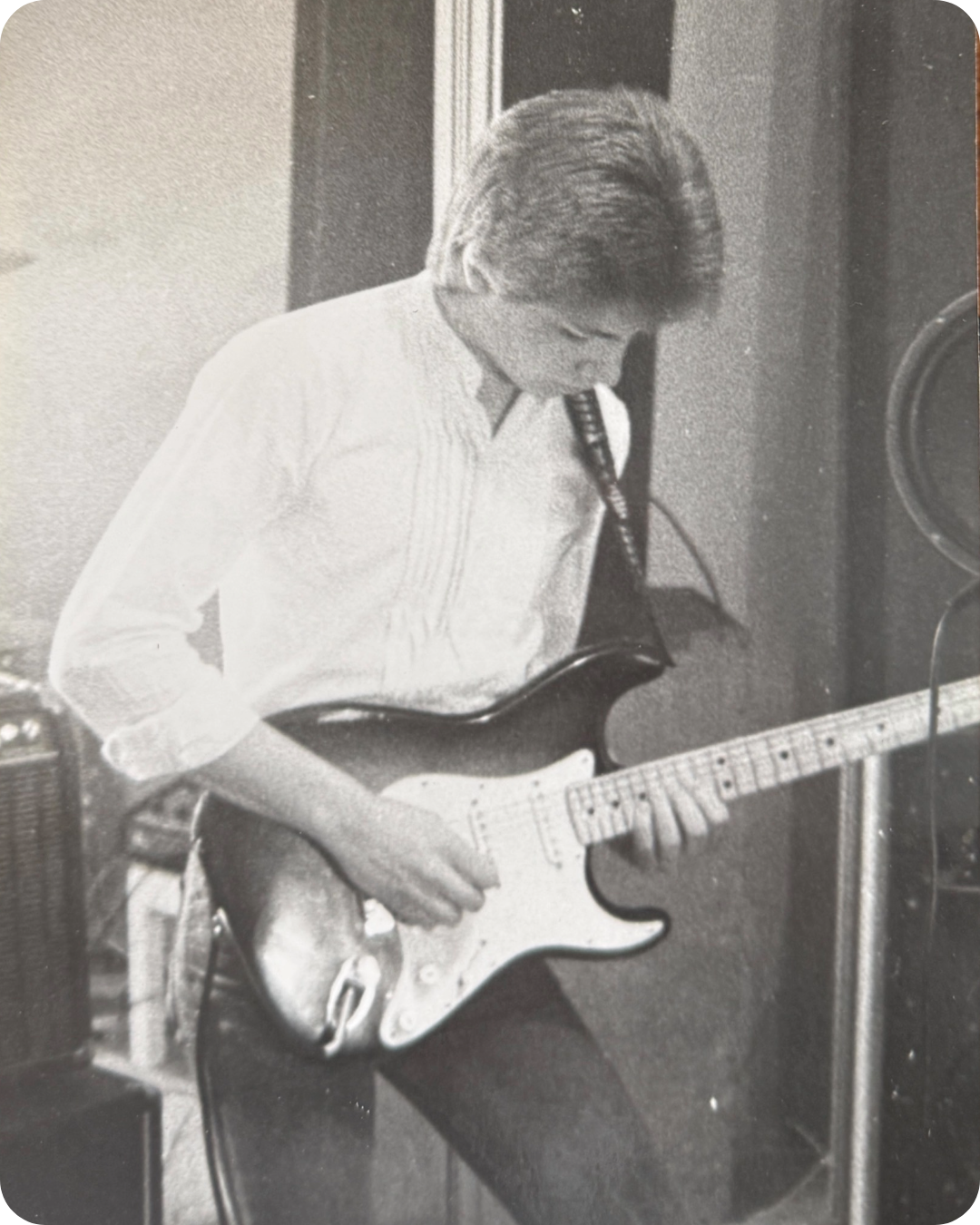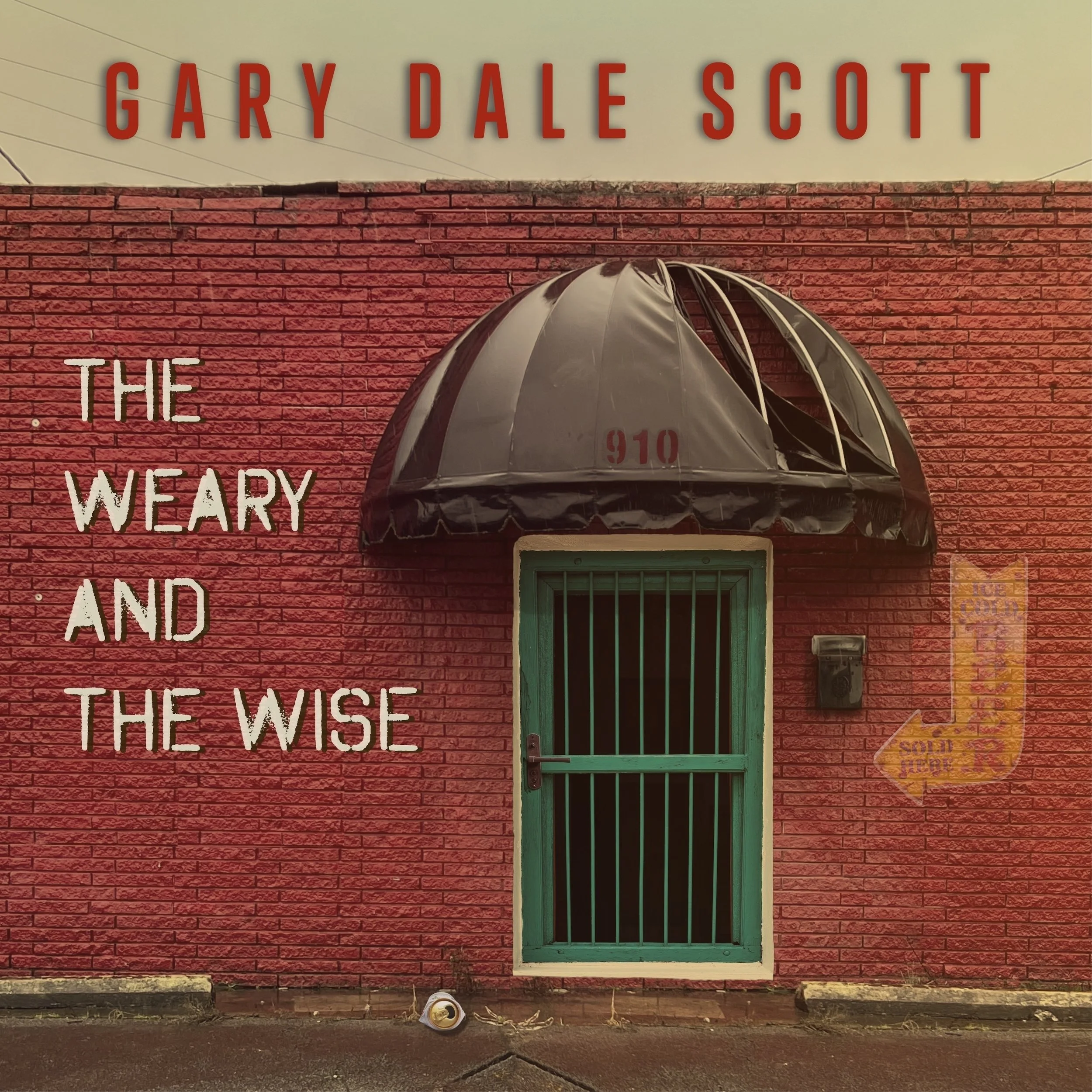a musical history
roots in Northern Kentucky
Gary Dale Scott is not only a man with three first names, he’s also a fourth-generation, blue-collar musician. His deep musical heritage began on a hillside in Northern Kentucky. Scott’s great-grandfather Raymond and great-grandmother Katherine raised eight boys on a 25-acre, hardscrabble farm in Williamstown. Living on the property with them was Jim, a freed slave who became an integral part of the Scott family. Jim not only helped Raymond run the farm but also taught him to play the fiddle and banjo. This musical influence was passed down to Raymond’s eight sons, some of whom saw music as a way of pursuing opportunities beyond the farm.
The Achievements of the Scott Brothers
Among Raymond’s sons, Charles, (Gary’s grandfather, pictured above on the right with WHOP radio host Dink Embry), toured before WWII with his brother Ray as “Pete and Repeat.” They were cowboy singers who performed regularly at venues like Renfro Valley Barn Dance and the Midwestern Hayride. Younger brother Walter moved to Cincinnati, where he worked for General Electric, and wrote the hit song “Burning Bridges.” The Country classic has been recorded by numerous artists, including Jack Scott (no relation), Glen Campbell, Roger Miller, Connie Smith, and George Jones. Another brother, Glen, overcame childhood polio to develop a unique guitar style, making him a sought-after musician in clubs around Cincinnati and Indianapolis. Glen’s bands were known for their quality, and one even featured a young Steve Wariner as a guitarist, bassist, and vocalist. Another brother, Ray, chose a different path in music, pursuing broadcasting. He worked at WNOP, the Jazz station on the barge on the Ohio River in Cincinnati, where he rose from DJ to General Manager and became known as the Gray Fox.
THE LEGACY CONTINUES WITH…
A New Generation in Nashville
The next generation of Scott musicians continued the family’s connection to music. Gary Dale Scott’s father, Arliss, moved to Nashville in 1967 with his wife Dottie and infant son. Discovered by Grand Ole Opry star Billy Walker in Indianapolis nightclub, The Blue Flame, Arliss soon became Walker’s main guitarist, performing on stage at the Grand Ole Opry, on the nationally syndicated TV show Country Carnival, and touring across the country. Arliss eventually left the road, settling into a house gig with the original Nashville Cats in the Western Room in Printer’s Alley. He later toured and recorded for renowned artists such as Earl Thomas Conley and Johnny Cash, and played acoustic, electric, and gut string guitar on eight of the ten tracks on Alabama’s breakthrough album, My Home’s In Alabama.
Arliss’s brother, Rick Scott, began his career as a rock and roll drummer in Middletown, Ohio. When a band called Wild Country needed a drummer, Arliss brought 16-year-old Rick to audition for the up-and-coming country rock group. Rick passed the audition, and after years of touring and a residency at The Bowery in Myrtle Beach, SC, the band changed its name to Alabama. Rick played on several of Alabama’s albums and co-wrote songs, including the multi-million-selling single “Why Lady Why.” He later wrote for artists such as Johnny Cash, Earl Thomas Conley, and Ed Bruce.
Gary Dale Scott’s Musical Journey
With such a rich and storied family history, it was natural for Gary Dale Scott to pursue music. He received his first guitar, a black 1974 Fender Telecaster Custom, from his father on his 13th birthday, followed by a sunburst 1976 Fender Stratocaster from his uncle Rick. Using these guitars, Scott formed his first garage band, Short Term Effect, with his uncle Larry on bass and Chris Feinstein on drums. (Feinstein later played with Shadow15, Iodine, and Ryan Adams). The band’s first paid performance was at a New Year’s Eve party in Mt. Juliet, TN, when Gary was 15. The three-piece group earned $15, which they split evenly.
Scott later worked as a drummer and vocalist in clubs around Nashville, West Kentucky, and West Tennessee while attending Murray State University. After college, he continued performing several nights a week while managing newsrooms at two NPR member stations for 12 years. The first was WKMS in Murray, KY, and then at WMUB in Oxford, OH. When the U.S. economy declined in 2008, and he lost his radio job, Scott decided to pursue music full-time with his wife, Dalia Garcia. Together, they recorded two albums and toured for 12 years as Garcia and Scott. When the pandemic forced them off the road, Dalia began a career as a visual artist while Gary went to work at the legendary Gruhn Guitars and started recording his first solo album, The Weary and The Wise, in his home studio.

